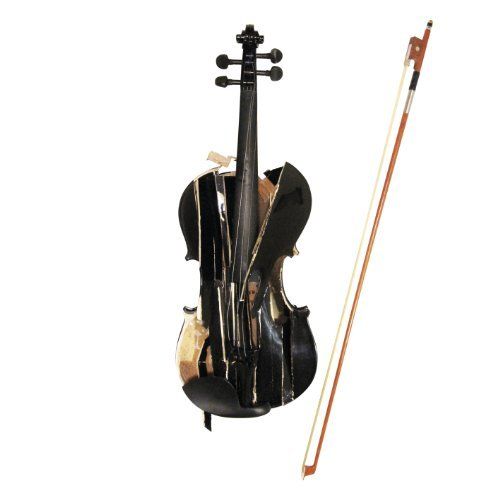One of Rene Hell’s last.fm tags is “abstract.” This at first seems like a redundant description; after all, any ambient work that avoids classical pop song construction could be considered “abstract.”
But, the tag is especially apt for Jeff Witscher’s latest release under the Rene Hell moniker, The Terminal Symphony. The ten tracks–I’m hesitant to call them “songs”–that make up this LP sound spontaneous and kinetic, as though all these noises existed independently of each other but one day met by chance to create a perfect storm of hyperspeed arpeggios, jarring drones, and unplanned harmonies. This is electronic music of the most abstract sort; an insatiably curious Witscher takes a rather laissez-faire approach to his music, letting his synth work speak for itself in all its strange permutations.
In fact, “strange” is just as appropriate a description for this album as “abstract.” The arsenal of sounds Witscher employs–from the unintelligible spoken-word samples on “Oxford Meter End” to the sci-fi robot squelches of “Cello Suite No. 3” and the 8-bit charm of tracks like “E.S. Des Grauens in Fifths,” serve to keep this otherwise difficult music palatable, accessible, and even catchy to the listener. “Detuned Clarinet” and “Juliard Op. 66” achieve unexpectedly melodic poignancy with their majestic string-like synth meditations, while “Baroque Ensemble Coda” plays out more like a collage of synth effects than a song with any recognizable tune. The Terminal Symphony isn’t nearly as rhythmically driven as 2010’s Porcelain Opera; in fact, it’s difficult to identify even a single percussive beat over the course of its 40 minutes. But what it lacks in rhythm it makes up for in sheer atonal beauty. The album and track titles’ allusions to classical orchestral music point to the temporal ambience of this music, which constantly sounds like it’s either warming up or winding down. These tracks never seem at rest, and while this can occasionally overwhelm the listener, for the most part Witscher knows when it’s time to switch gears and try something new. And so we get results like the opening track, “Chamber Force,” which begins with ominous atonal noises before giving way to a Lopatin-inspired drone that in turn morphs into a serene afterglow that wouldn’t sound out of place on a Stars of the Lid album.
Ultimately, The Terminal Symphony has to be heard to be understood. Like the best abstract art, it at once invites and defies description; just when you think you’ve gotten a grip on the proceedings, Witscher throws another couple tricks into the mix that take the sound in yet another direction. In spite of all this, Rene Hell never abandons the listener, and it’s this masterful pacing that makes The Terminal Symphony a worthwhile aural affair.

